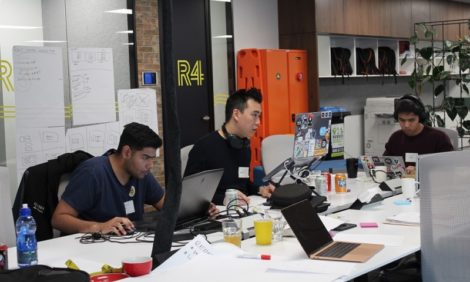
BankEngine’s Sandbox: Shifting the dial in Open Banking

Rewired in Auckland was the host of New Zealand’s first Open Banking hackathon. Here teams got together to create innovative apps to make Open Banking easier.
What is Open Banking?
Open Banking essentially turns your bank account into a hub where other services can securely access parts of it, with your permission. The goal of Open Banking is to help consumers and small businesses with their personal finance. It achieves this by making payments and access to other financial services easier. In the case of a small business for example, they may wish to share their data from their bank (or Xero) with a lender digitally to apply for a loan.
We’ve got so much information sitting inside our bank accounts as consumers or businesses. If we could harness this data, it would give us access to cheaper loan facilities, better insurance and better financial literacy. But this information is locked away, inaccessible to us as our bank holds the keys to it.
The UK has led the way with Open Banking and this has spurred further bank and Fintech innovation. The list of ‘regulated providers’ enrolled in Open Banking can be found here. Australia will soon follow. This presents an opportunity to us in New Zealand, as we can pick the best of what is happening internationally and create the best environment for innovation. In New Zealand today we are taking an unregulated approach to Open Banking.
The Open Banking Hackathon
Xero’s co-working space for startups, Rewired, hosted New Zealand’s first Open Banking hackathon. The session was run by Elliott Darling and the team at BankEngine, a resident of Rewired themselves.
60 people eager to create new Open Banking applications came together over a weekend. Once they each set up a demo account, they were given access to data and payments via the BankEngine sandbox. An API sandbox is an environment that testers can use to mimic the characteristics of the production environment. It allows them to create simulated responses from all APIs the application relies on.
10 of the teams got up and running in the sandbox within the two days. One team even managed to do it in the first day. This is a fantastic result for BankEngine to see that with their product, teams could start building on top of New Zealand’s banking infrastructure within days, rather than months.
The winning team was Keep Accountable who built an app to help people work towards personal saving goals. The app deducts money and sends it to your ‘subscribers’ or sponsors whenever you fail to meet your goals. Reminiscent of a digital swear jar.
Some of the other apps were:
Solo – to automate taxes including IRD payments for self-employed people
Herengi – to present financial data more visually to increase children’s financial literacy
Fund-a-future – to automate tax refunds for charitable organisations
Own my data – to visualise consumer financial data and putting it back in the consumer’s hands
Bank Robbers – to connect Fitbit data with banks and charities for automated fundraising runs
How BankEngine is shifting the dial
BankEngine is a platform that makes it really easy for tech companies to do Open Banking. In New Zealand, we’ve made some progress towards Open Banking but we’ve still got a long way to go. The Minister of Commerce and Consumer Affairs Kris Faafoi has approached NZ’s Open Banking strategy by having Payments NZ drive our progress by involving key industry players.
Payments NZ has released a set of standards for banks and third parties to follow when building on top of New Zealand’s banking infrastructure. The organisation holds regular meetings with banks and financial services to discuss how the industry can drive Open Banking further. This approach has meant there’s been a few different implementations of the standards and not a lot of consistency in the way third parties integrate with banks.
“It doesn’t make sense for every fintech or tech company to try and do those integrations themselves for every bank they want to integrate with,” says Elliott. “We built the API to take the heavy lifting out of these integrations for other fintechs.”
BankEngine provides a reliable bank integration through one simple, secure API. Their full API service takes care of compliance, security, reporting and administration requirements.
Elliott Darling has a tech background, predominantly as a product owner around the Xero ecosystem, focusing on APIs and integrating systems. He is currently the product owner for billing and subscriptions at Xero, and has just completed 3 months in the Kiwi Fintech Accelerator programme with BankEngine.
The post BankEngine’s Sandbox: Shifting the dial in Open Banking appeared first on Xero Blog.
Source: Xero Blog






